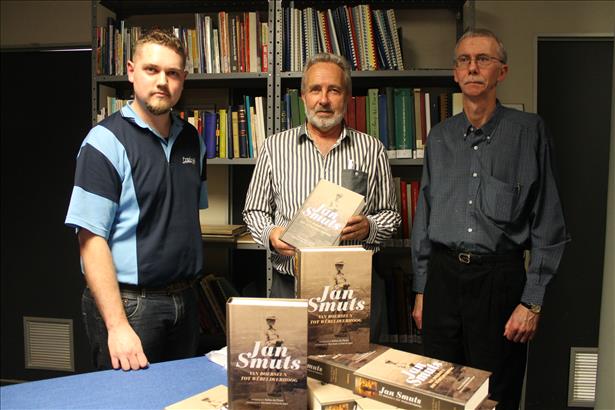Latest News Archive
Please select Category, Year, and then Month to display items
23 November 2022
|
Story André Damons
![]()
Prof Motlalepula Matsabisa, Professor and Director of Pharmacology, will play host to the various stakeholders to network and share knowledge on current developments in indigenous knowledge research and product development, biodiversity, innovation, and commercialisation of the IK-based research products. The Indigenous Knowledge System (IKS) for Health unit in the Department of Pharmacology within the UFS Faculty of Health Sciences was last year awarded an annual Technology Innovation Agency Platform (TIA) grant of R17 million for the next five years.
The research and teaching programme in the School of Clinical Medicine has since been rebranded and is now known as the African Medicines Innovation and Technology Development Platform (AMITD), which will strive to respond to community health needs and address industry research needs and challenges.
The indaba will showcase progress made by TIA and other entities in enriching the development and commercialisation of IK-based innovations. It will take place from 24 to 25 November 2022 in the Equitas Senate Hall at the UFS.
Prof Matsabisa is the chairperson of the World Health Organisation’s (WHO) Regional Expert Advisory Committee on Traditional Medicines for COVID-19. He is also a visiting professor at the Beijing University of Chinese Medicine (BUCM) in Beijing, China, and the Deputy President of the South African Society for Basic and Clinical Pharmacology.

Jan Smuts: from country boy to world stage; a reassessment
2017-11-10

At the book discussion of Jan Smuts: van boerseun tot wêreldverhoog;
'n herwaardering, were from the left: Con Robinson, Protea Bookshop;
Prof Kobus du Pisani; and Prof André Wessels from the Department
of History at the UFS.
Photo: Leonie Bolleurs
Prof André Wessels from the Department of History at the University of the Free State (UFS) was one of 20 co-authors of Jan Smuts: van boerseun tot wêreldverhoog; 'n herwaardering – a book compiled under the leadership of the general editor, Prof Kobus du Pisani, from North-West University. This unique history book deals with the different themes in the life of Smuts, rather than describing the events chronologically.
South Africans are almost afraid of their own history nowadays ... and yet another history book is being launched. Does it make sense? Yes, for two reasons.
The monster in the dark
One of the ways to overcome fear is through knowledge. The monster in the dark disappears when one understands that the street lights and tree branches are creating interesting shadows. The more one knows about something, the less scary it becomes.
The Greek Bible
This was possibly also Smuts’s approach. Knowledge was his passion, and even today he is considered as one of the best students of the University of Cambridge. Although very few people really understand his holism theory, Smuts experienced the complex world in a very simple way – as one – not as lots of different pieces functioning independently of each other.
Smuts could have made a success of any of his interest fields – law, botany, literature, and philosophy. However, politics laid three wars on his doorstep. While he is regarded as a militarist by some, he was actually a peacemaker. He played a role in the establishment of the League of Nations, and later the United Nations. Incidentally, he continued to read the Greek Bible while on commando during the Anglo-Boer War.
A colourful character
The second reason for yet another Jan Smuts history book is his fascinating humanness. Time should be spent on colourful characters such as this. It is worthwhile hearing the story of someone who had such a great impact locally and internationally – good or bad.